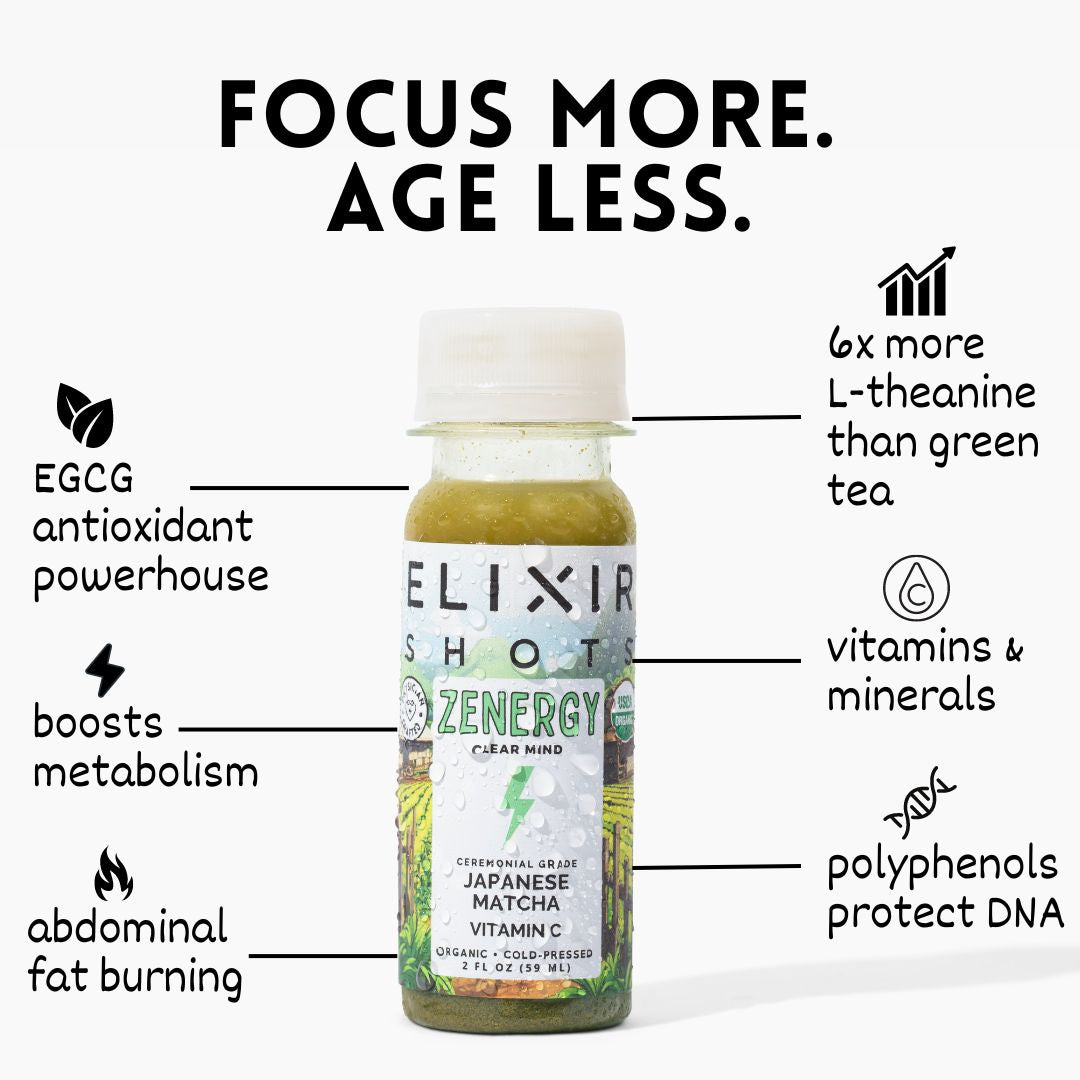**1. Rich in Antioxidants**
- **Benefit**: Antioxidants neutralize free radicals, which are unstable molecules that can damage cells and accelerate aging. By reducing oxidative stress, matcha helps protect cells from damage that can lead to signs of aging such as wrinkles, fine lines, and dull skin.
- **Evidence**: Matcha is particularly high in a type of antioxidant known as catechins, with epigallocatechin gallate (EGCG) being the most potent. Studies have shown that EGCG helps to prevent collagen breakdown, which is essential for maintaining skin elasticity and firmness .
**2. UV Protection**
- **Benefit**: The antioxidants in matcha, especially EGCG, also provide some protection against damage caused by ultraviolet (UV) radiation, which is a major contributor to skin aging.
- **Evidence**: Research published in the *Journal of Nutritional Biochemistry* indicates that EGCG can reduce the effects of UV-induced skin damage by decreasing inflammation and protecting against oxidative stress. This makes matcha a useful dietary component for protecting the skin from photoaging .
**3. Anti-Inflammatory Properties**
- **Benefit**: Chronic inflammation is a key factor in the aging process, contributing to various age-related conditions and visible skin aging. The anti-inflammatory properties of matcha help reduce inflammation in the body, supporting overall health and potentially slowing the aging process.
- **Evidence**: A study published in *Molecular Nutrition & Food Research* found that EGCG in green tea can suppress the production of pro-inflammatory cytokines, which are molecules that promote inflammation. This suggests that regular consumption of matcha may help manage inflammation and reduce its impact on aging .
**4. Skin Health and Elasticity**
- **Benefit**: Matcha supports skin health by promoting elasticity and hydration, essential factors in maintaining a youthful appearance. The catechins in matcha help to prevent the degradation of collagen and elastin, proteins that are crucial for maintaining firm, elastic skin.
- **Evidence**: Studies have demonstrated that the consumption of green tea polyphenols can lead to improvements in skin elasticity and hydration. For example, a study published in *The Journal of Nutrition* reported that women who consumed green tea polyphenols experienced improved skin elasticity and reduced wrinkles after 12 weeks .
**6. Reduction in Stress and Improved Relaxation**
- **Benefit**: Matcha contains an amino acid called L-theanine, which promotes relaxation and reduces stress without causing drowsiness. Lowering stress levels is crucial for slowing the aging process, as chronic stress can accelerate aging and increase the risk of age-related diseases.
- **Evidence**: L-theanine has been shown to increase alpha brain wave activity, which is associated with a relaxed but alert mental state. Research in *The American Journal of Clinical Nutrition* has shown that regular consumption of L-theanine can reduce stress-related biomarkers, which may help in slowing down the aging process and promoting overall well-being .
**7. Cognitive Function**
- **Benefit**: Matcha has been linked to improved cognitive function, which is important as cognitive decline is a common issue with aging. The combination of L-theanine and caffeine in matcha enhances focus, memory, and cognitive performance.
- **Evidence**: A study published in *Nutritional Neuroscience* found that participants who consumed matcha showed improvements in attention, processing speed, and memory compared to a placebo group. This suggests that matcha can help maintain cognitive function as we age .
**Conclusion**
Matcha offers several potential anti-aging benefits, primarily due to its rich content of antioxidants, particularly EGCG, as well as its anti-inflammatory properties, and ability to promote relaxation and cognitive function. While more research is needed to fully understand the long-term effects of matcha on aging, the existing evidence suggests that regular consumption of matcha can contribute to healthier, more youthful skin, protect against UV damage, and support overall well-being as we age.

